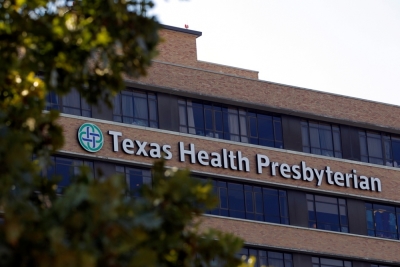The 'Cross-Your-Fingers' Public Health Strategy

Maybe the country that claims to have the "best healthcare system in the world" can get away with ignoring basic public health strategies that have worked for centuries. Perhaps we can say, "It can't happen here." After all, Ebola seems to have gone away, as epidemics do—sooner or later.
Some apparently even think that we can save the rest of the world by providing a safety valve for hot zones, right into American airports and schools.
Yet we may not be all powerful. Here is the word from top public health officials about some 400,000 cases of chikungunya, which is sweeping through the Caribbean and Latin America: "We can only keep our fingers crossed—painful as that might be for many people infected with chikungunya—that the Caribbean epidemic will decline and the virus will depart from the Western Hemisphere." So write David M. Morens, M.D., and Anthony S. Fauci, M.D., of the Arboviral Diseases Branch, Centers for Disease Control and Prevention (CDC), in the Sept 14, 2014, issue of The New England Journal of Medicine. Dr. Fauci's name is familiar from his pronouncements on Ebola.
Chikungunya is a viral disease transmitted by the Aedes aegypti mosquito. There is no treatment and no vaccine. It causes excruciating muscle and joint pains along with flu-like symptoms. About 1 in 1,000 victims die. At least 20% of patients continue to have severe recurrent joint pains a year later.
Haiti is especially hard hit, causing dozens of people with aid and missionary groups to cancel their travel.
At least 480 travelers have returned to the U.S. with the Chikungunya disease, and isolated cases of local transmission have been reported.
Dengue, a clinically similar viral disease transmitted by the same mosquitoes, has become the fastest growing global health threat. It also causes severe joint and muscle pain that earned it the original name "breakbone fever." More lethal than chikungunya, it sometimes causes a hemorrhagic fever that claims 20,000 victims annually. Pockets of local transmission are now present in the U.S.
What has been the response of the Obama Administration? By executive order, the President will allow 100,000 Haitians into the U.S. without visas.
The Obama Environmental Protection Agency (EPA) is also implementing punitive regulations on the coal industry, which currently fuels 40% of our electrical generating capacity. This is supposed to fight global warming (or "climate change"), which some say threatens public health by expanding the range of the Aedes aegypti mosquito.
This mosquito is already found all across the lower half of the U.S., thanks to West African slave trading 500 years ago. Additionally, a genetic mutation in the chikungunya virus makes it more susceptible to transmission by the Asian tiger mosquito (Aedes albopictus) found in 32 states from Texas to New York.
During a 1999 dengue outbreak on the Texas-Mexico border, there were twice as many infections on the Mexican side although mosquitoes were three times as abundant in Texas. The absence of air-conditioning in the home was the factor most closely associated with testing positive for dengue. The amenities made possible by affordable electricity have a public health benefit—and the EPA assault on cheap energy thus carries a public-health risk.
Of course, mosquitoes can't transmit disease unless they have previously bitten an infected person. So the key public health principle remains—keeping disease out of the U.S. requires restricting entry of diseased persons. And keep in mind that more than 50 percent of people with dengue, and up to 18 percent of people with chikungunya may be asymptomatic.
This goes directly contrary to the Obama immigration policy. Instead of travel restrictions, the CDC's main strategy with Ebola is to let possibly exposed persons enter by air, and then track them. About 1,400 people are now being actively monitored.
So far we've been lucky. Dr. Craig Spencer, for example, did not suddenly become ill in the N.Y. subway and infect a homeless drug addict, who might later leave copious amounts of body fluids in public places without knowing what was wrong with him.
We're keeping our fingers crossed.




























